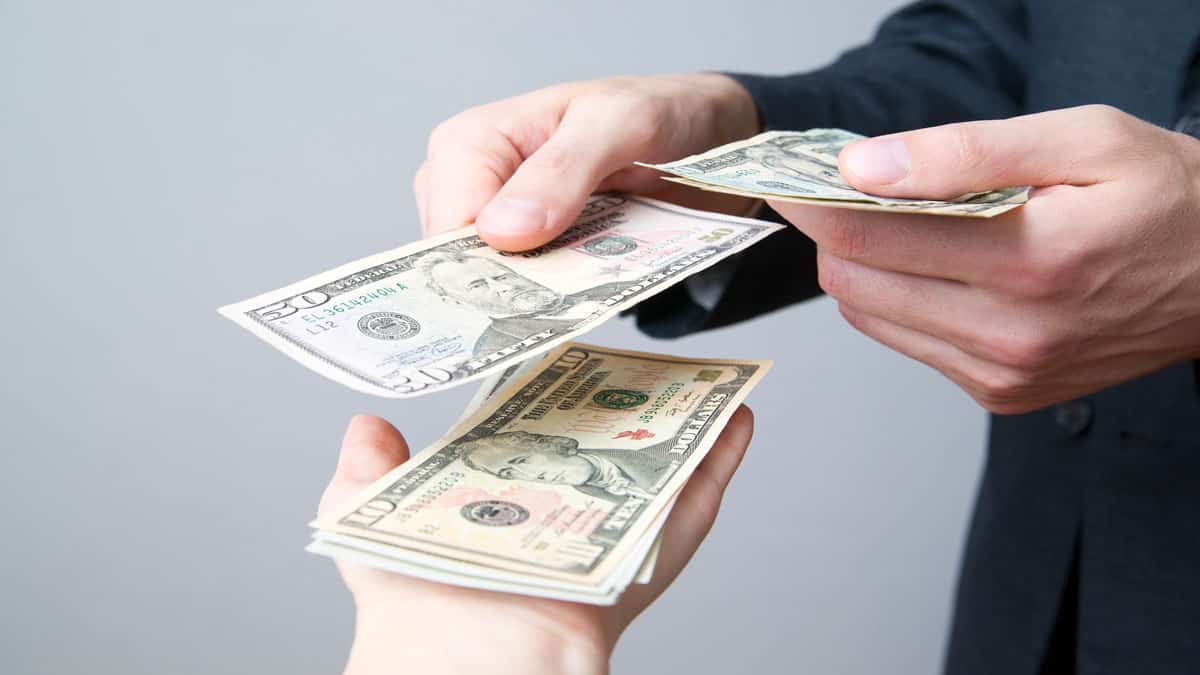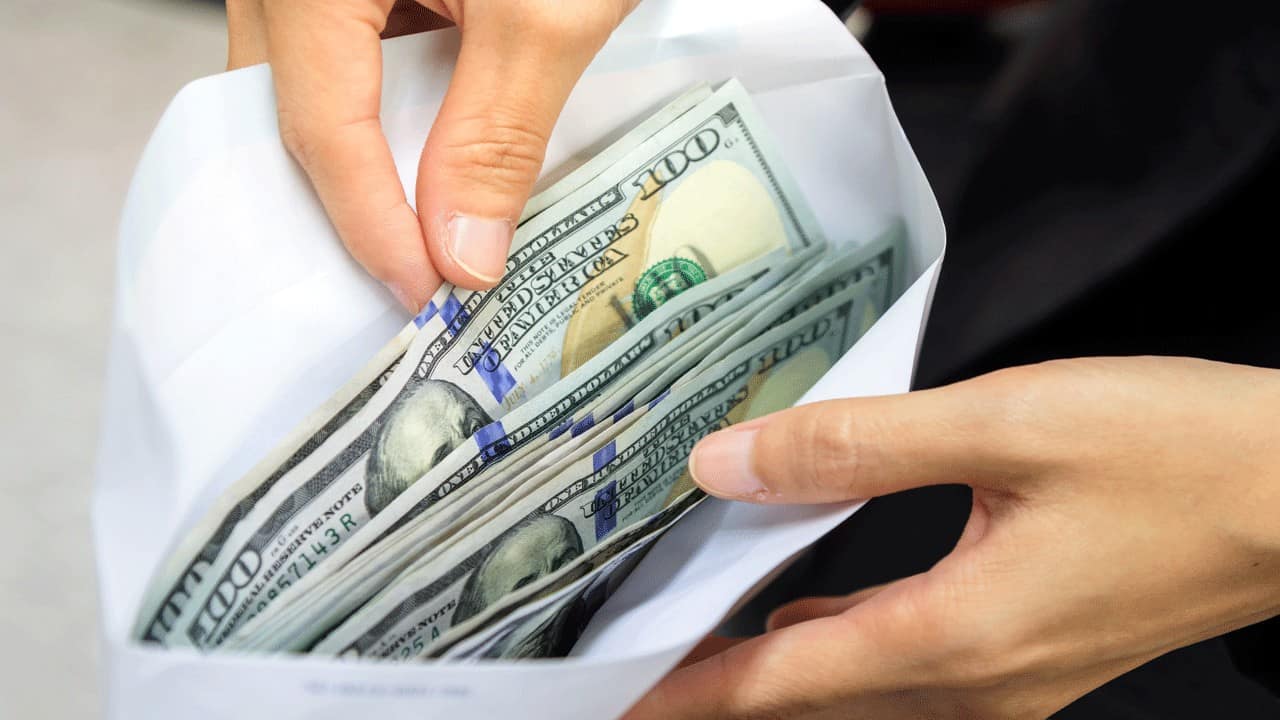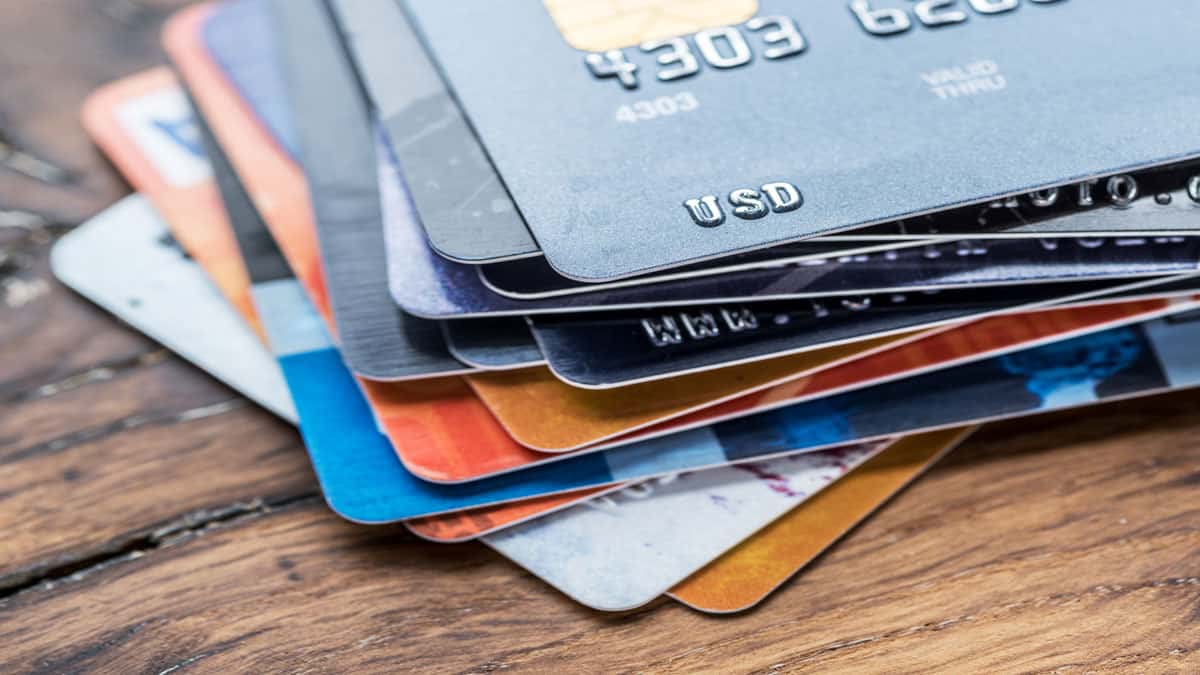THIS POST MAY CONTAIN AFFILIATE LINKS. PLEASE SEE MY DISCLOSURES. FOR MORE INFORMATION.
Are you struggling to make ends meet in the face of growing credit card debt?
Many of us can relate; it’s easy enough to rack up a large balance on your credit cards, but far too difficult to pay it back.
The good news is that there are many practical solutions available that can help you take control of your debt and start rebuilding your financial future.
We’ll explore 12 different strategies for saying goodbye to credit card debt once and for all.
It’s time to learn how to get out from under the strain it causes!
#1. Brush Up On Your Financial Education

It’s never too late to become more financially educated. The more you know about your finances and what you should be doing, the better you can easily navigate your finances.
You can easily start by learning more about managing credit cards. Plenty of books, podcasts, blogs, mentors, and even movies and documentaries are willing to give you what you need to succeed in your financial life.
It can be daunting initially, but you’ll become more confident about money over time!
#2. Get Help From a Friend

No, you’re not asking your friend to pay off your debt for you.
Rather you will use them as your accountability partner.
Having someone you can share your wins and losses with is a game changer when it comes to debt.
You will be excited to pay down your debt because not only will you be excited to tell your friend, but they will be excited for you, motivating you even more.
#3. Pay It Off In Full Every Month

Some people are comfortable carrying a balance and might be able to do that responsibly. Others, however, aren’t.
The best way to avoid credit card debt is to pay off the entire balance every month. This shouldn’t be too difficult, as one good rule of thumb is to keep your credit utilization below 10% (even though 30% is the absolute maximum).
You don’t have to pay any interest when you pay it off in full, which can sneak up on you if you’re not careful. Keep this in mind every time you use your credit card!
#4. Never Max Out Your Cards

Maxing out your cards is the worst thing you can do. Not only will it cause your credit to take a hit, but those with much larger credit limits can find themselves on the hook for massive bills.
If you have multiple cards, that’s even more debt you must tackle over a very short period.
This ties in to never spending more than you can afford, but it’s a reminder that maxing out your cards has more consequences than those it imposes on your finances.
#5. Have An Emergency Fund

Saving is such an essential activity that very few people engage in. Your credit card debt is just one area of your life.
Unfortunately, adulthood means juggling multiple financial responsibilities at once. If something happens to your income or an emergency arises, you may not have enough to take care of your credit card debt.
This is why it’s essential to start building an emergency fund immediately. This gives you enough cash to deal with a major life development so you don’t fall behind on things like your credit card payments.
Granted, there can be major situations that cause issues anyway. However, it’s better to have a bit of savings than none.
#6. Track Your Spending Closely

The biggest lesson you need to know about using credit cards is budgeting. You have to budget and monitor your spending so that you never go over and spend money you don’t have.
One budgeting method people use is to write everything down and keep it in plain sight.
But if this sounds like too much work, you can always use a budgeting app that will help you track your finances and send you alerts if you’re ever at risk of spending more than you’re supposed to.
You’ll even find that some apps may help you find credit cards with much more favorable terms.
#7. Avoid Signing Up For Loyalty Cards

Loyalty cards can be great when the only thing they do is give you benefits in return for purchases. The problem? Many of today’s loyalty cards businesses offer aren’t these types of cards.
They’re often credit cards in disguise. If you’re not careful and you sign up for too many, you end up running the risk of going way over budget and having to try to consolidate your debt so that you’re able to take care of it.
A few cards here and there aren’t a problem, but you shouldn’t sign up for every loyalty card under the sun.
#8. Never Spend More Than You Can Afford To

Many people who are new to credit cards view them as free cash. The reality? A credit card is just a loan.
You are required to pay back however much you spend the month after. Overspending can lead to you paying back a ton of money at a time.
If you’re unable to, you start accumulating debt, which starts growing even larger every month you don’t take care of it.
The first lesson? Never spend more than you’re capable of. Don’t use your credit card if you can’t pay off something with cash.
#9. Take Advantage of Balance Transfers

Balance transfer offers can be a great tool to help you get ahead.
Many credit cards offer 0% offers where you pay no interest for 8 months to a year on the money you transfer from another card.
There is a small fee you pay, but it is much less than what you would pay in interest.
Once you make the transfer, attack the debt so that when the promotion ends, you paid off the balance.
Otherwise, you will start to owe interest on it.
#10. Create A Plan Of Action If You Do End Up In Debt

If you are in debt, you must immediately nip it in the bud.
This means sitting down, creating a new budget with room for paying back debt, coming up with a strategy to help you pay back debt immediately, and establishing other goals and milestones designed to make the process the least stressful on you as possible.
You should also develop ways to boost your income so you can still manage other areas of your life.
The sooner you work on your debt, the better your outcome.
#11. Transfer Money Over Immediately

One strategy that someone uses is transferring money over to their credit card account immediately after they make a purchase. Granted, this may not be something that everyone would want to use.
However, it could work for some people. After all, you physically move the money out of your checking account and see how much you still have left over.
For those with a spending problem that could get them into debt, this can make you think twice about spending so much money when you see how much you have in your bank account.
#12. Ask For a Lower Interest Rate

Here is a trick not many people are aware of.
Call up your card issuer and ask them for a lower interest rate.
As long as you’ve been paying on time, they should lower it for you.
Note the decrease is usually temporary, say 6-12 months, but it can help since more of your payment goes towards the balance and not interest.
One warning: when you call, they might offer a lower rate on new purchases.
You don’t want this. You want a lower rate on your outstanding balance.
#13. Don’t Save Cards On Apps

There are a ton of apps that make it more convenient for you to shop by allowing you to save payment information.
However, this is how those with a shopping addiction end up spending more and more money and plunging themselves into debt.
If you have any apps you have a card saved on, delete that payment information. If you have a digital version of your card on your phone, delete that too.
It makes spending much more challenging and gives you more time to think about a purchase before you make it, so you don’t just press a button once you get to checkout.
#14. Consolidate Debt

While not to be used all the time, if you have a lot of debt on many cards, it can be challenging to keep track and create a plan.
A quick solution is to take out a personal loan.
Here, you take the money from this loan and pay off all your credit cards.
Now you have one loan to repay, and most likely, a lower interest rate as well.
Just make sure you don’t’ start overspending with credit cards again, getting yourself into worse financial trouble.
#15. Pay Off Smaller Balances First

Take your credit cards and sort them from the smallest balance to the largest balance.
Set up an automatic payment plan for the minimum required amount on each card, then set up an extra payment that is equal across all of the cards.
Start by paying off the card with the smallest balance first, as this will give you a psychological boost when it is paid off in full and allow you to pay more on the next lowest card.
#16. Cancel Unused Subscriptions

Take a look at your repeating monthly payments and identify any subscriptions you no longer use.
Cancel them immediately to free up the money for debt repayment.
You’ll be surprised how much money you can save by cutting these unnecessary expenses from your budget.
Warning Signs Your Debt is Out of Control

Do you know the warning signs that your debt is out of control?
Here is a list to review and if any describe you, it is time to start taking your debt seriously.
WARNING SIGNS YOUR DEBT IS OUT OF CONTROL
How to Get Out of Debt

If being in debt wasn’t bad enough, trying to dig yourself is worse.
Combine the setbacks you face and the time it takes, it’s no wonder many people feel trapped.
But there is hope.
Here is how to get yourself out of debt once and for all.
Debt Snowball

If you are in debt, getting out can be a real struggle.
Luckily, there is the debt snowball method.
This simple plan will help you get out of debt and stay motivated along the way.
How To Get Back On Your Feet

When financial setbacks happen, you have two options. You can either give in and accept a life of struggle and stress, or you can do something about it.
If you want to do something about it, here are the steps you need to take in order to get back on your feet.
HOW TO GET BACK ON YOUR FEET FINANCIALLY
Steps To Building Wealth

We all want to have enough money that our finances are no longer a stress in our lives.
But with so much financial advice out there, building wealth seems impossible. Not any more. Here are the simple steps you need to take.
STEPS TO BUILD WEALTH AND BECOME RICH
This thread inspired this article.
I have over 15 years experience in the financial services industry and 20 years investing in the stock market. I have both my undergrad and graduate degrees in Finance, and am FINRA Series 65 licensed and have a Certificate in Financial Planning.
Visit my About Me page to learn more about me and why I am your trusted personal finance expert.

